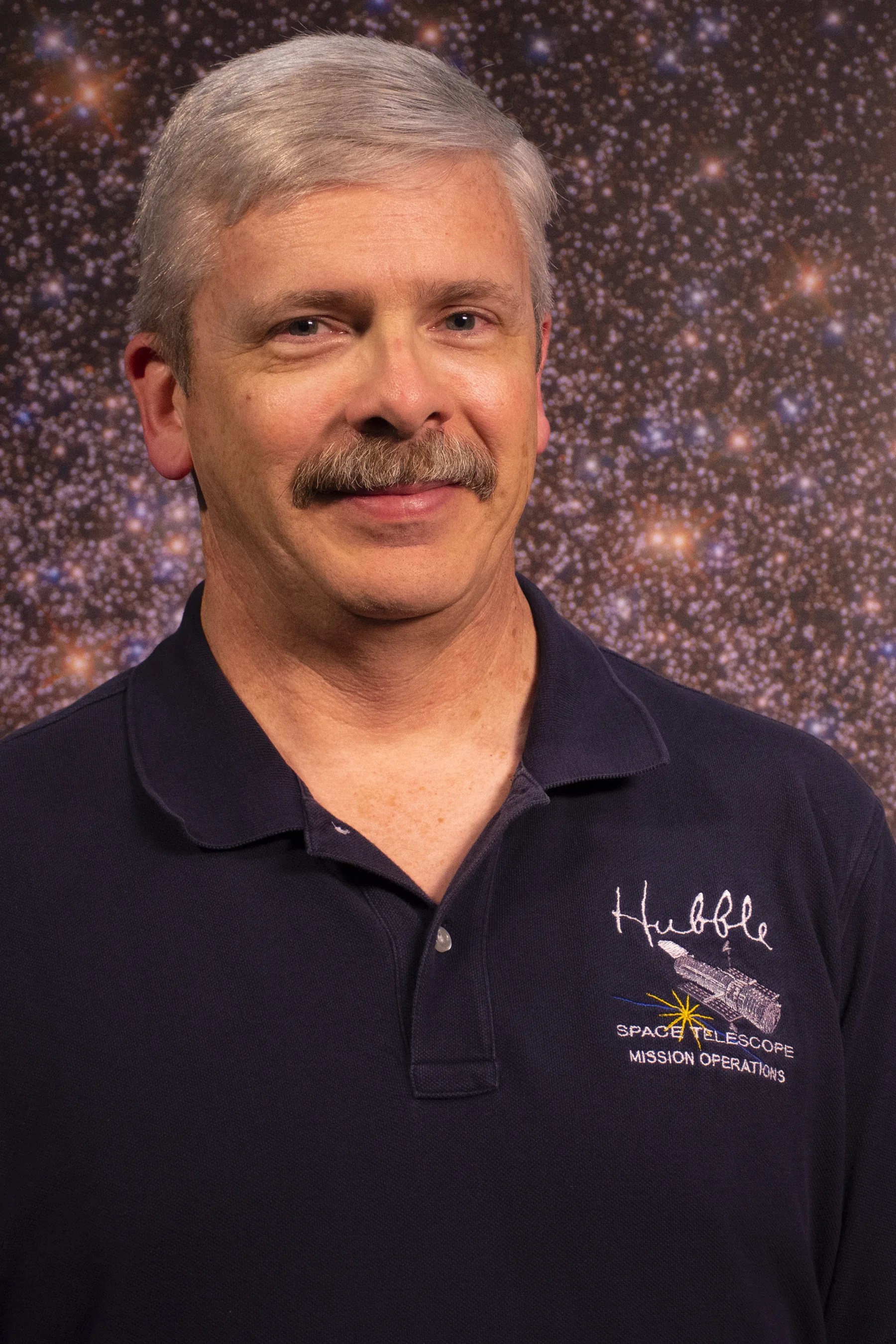
Jerry Edwards
Flight Operations Supervisor
Jerry Edwards remembers touring Goddard Space Flight Center as a middle school student in Bel Air, Maryland. Years later, he would walk into his new workplace building and experience a shock of recognition. “That was freaky weird,” he recalled with a laugh. “Little did I know that many years later I’d be working here.”
As Flight Operations Team shift supervisor and a senior systems engineer, Jerry makes sure Hubble is performing normally, that all the instruments are functioning, and that the science instruments can perform observations.
“Basically, I make sure the thing is pointing in the right direction and the shutter goes click,” he joked. “It’s a little more complicated than that, but that’s the nature of it.”
The more-complicated description includes monitoring and evaluating the performance of Hubble’s hardware; working with Hubble’s pointing and control system, ground control, and flight software engineers; analyzing spacecraft problems and making plans to deal with them; coming up with alternate operating techniques; and much more.
Jerry particularly enjoys investigating what’s wrong when Hubble has a problem acquiring a guide star. Before Hubble can make an observation, it must find and lock onto a pair of guide stars, which allow Hubble’s Fine Guidance Sensors to measure the telescope’s position relative to the target. A star might be too dim or too bright, or the telescope’s position may have been incorrect. “It’s like figuring out a puzzle. Some things follow the same sort of pattern, but other times it’s something completely different, so you never know what you’re going to get.”
Jerry attended Harford Community College in Bel Air, Maryland, obtaining a certificate in photography — which he still enjoys as a hobby — before joining the Air Force in 1984. “I always wanted to do that as a kid. I was just fascinated with airplanes, so that was the natural progression.”
In the Air Force, he went to technical school to learn to be a radio operator, a role that eventually transformed into flying satellites for the Air Force and the Department of Defense. “My career field was changing and the technology was changing, and it just pushed us in that direction.” He graduated from the Air University, the Non-Commissioned Officer Academy and the Senior Non-Commissioned Officer Academy, all at Maxwell Air Force Base in Alabama, while specializing in Military Studies.
The Air Force provided both education and experience that he was able to use when he retired after 21 years. “It’s not for everybody because going into the military requires a significant commitment,” he cautioned. “But there are a lot of really good schools they’ll send you to depending on your job, and a lot of opportunities there. It’s one of those things you really have to stop and think about if it’s something you want to do. But I’ve known some people who have gotten into really good jobs.” A person graduating from college may have an engineering degree while a person leaving the military may not, but the military will have provided multiple years of hands-on experience to show employers, he added.
In Jerry’s case, that experience came into play when he applied for and obtained a job on the Hubble project in 2005 as a flight controller working on the pointing and controlling system. In 2009, he became a shift supervisor, and eventually took on his current role as flight operations mission engineer and team shift supervisor.
For positions like his, Jerry recommends a good background in science and math, but also in mechanics. In the Air Force, he volunteered to help restore aircraft at Peterson Air and Space Museum in Colorado and at Hurlburt Field Memorial Air Park in Florida. “You learn about the construction of the aircraft because you you have to take it apart to fix it and then put it back together,” he said. The mechanics experience would provide an additional level of knowledge. “A lot of people forget the mechanical aspects of things. Hubble has a lot of electronics and computers, but a lot of moving mechanical pieces as well.”
